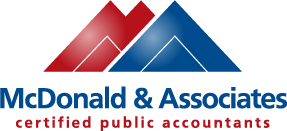Getting the Most Out of Homeowners Insurance
Looking for a way to tackle insomnia? Read your homeowners insurance policy. Kidding aside, it’s worth the effort. This is especially important as insurance costs are going through the roof and too many surprises occur when you need your insurance after an event requires you to file a claim.
Here are some areas that may require a review.
- Setting the correct amount. Just like the three bears fairy tale, you can have too much OR too little insurance. Replacement cost is the key, so review if your policy covers only the mortgage or real-estate value, and not the replacement cost. Construction prices have skyrocketed, so the cost of rebuilding a new home on the same lot could shock you. On the other hand, most claims do not require replacing your entire home.
- Understanding what is NOT covered. Is your home covered for exterior flooding, or only interior water damage? Does the policy include coverage for mold, sewer backup, earthquakes and hurricanes? Nail down the details and pay close attention to local risks. This is where a great insurance agent can help you understand what surprises they have seen with claims. Get an agent that is transparent with this knowledge, as they see both success and horror stories every day.
- Get the right deductibles. You may find that, unlike an auto policy, your homeowner’s insurance doesn’t include a flat-rate deductible for every type of claim. Some policies charge a percentage rate under certain circumstances. Say your house is insured for $300,000 and an earthquake strikes. If the insurer stipulates a deductible of five percent of the policy amount, you may be saddled with $15,000 in out-of-pocket costs before the insurance covers the rest. So explore the correct deductible for your financial situation and understand the policy savings by moving your deductible up or down from its current level.
- Understand liability insurance coverage. A standard homeowners insurance policy usually has some level of liability insurance, albeit often at a minimal level. Ask several professionals what level of liability insurance would make sense for your particular situation and be willing to bump up your coverage to protect you and your family in the event that someone is injured while on your property. Many companies offer umbrella insurance to provide additional coverage for claims against you. Review if this is a good addition for your situation.
With homeowners insurance premiums skyrocketing, now is the time to really understand your coverage and the underlying risks you are absorbing. Remember, our natural tendency is to avoid the small print, but by understanding the natural tendencies of insurance companies to shift more of the burden from them to you, this knowledge can be used to motivate yourself to spend some time reviewing the details.


